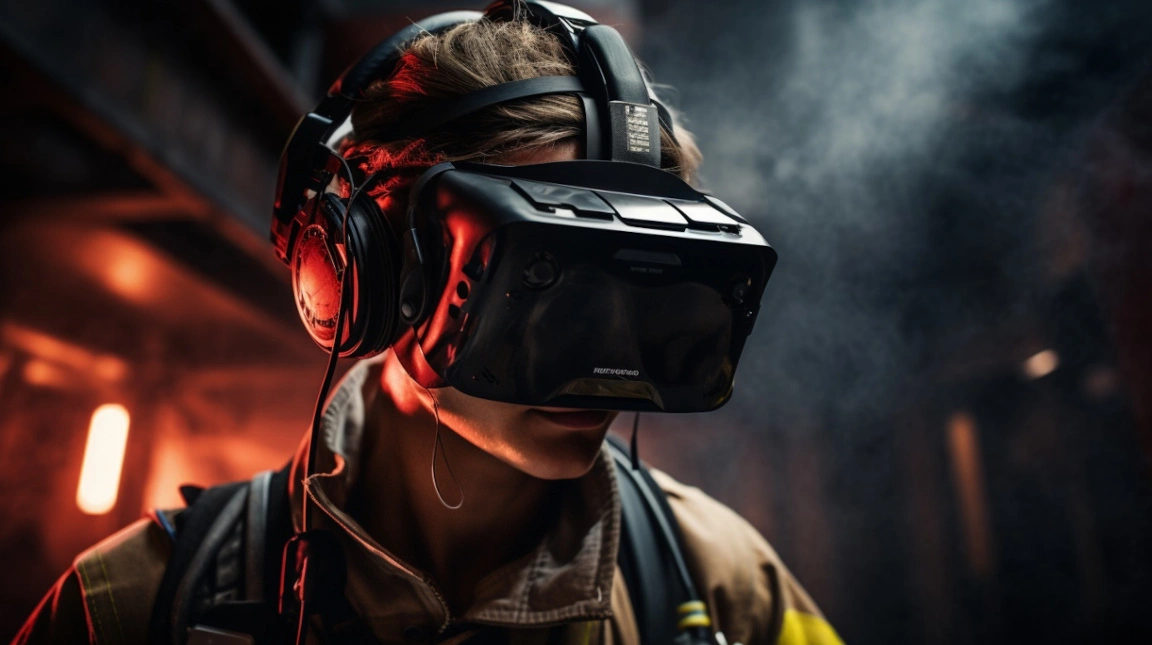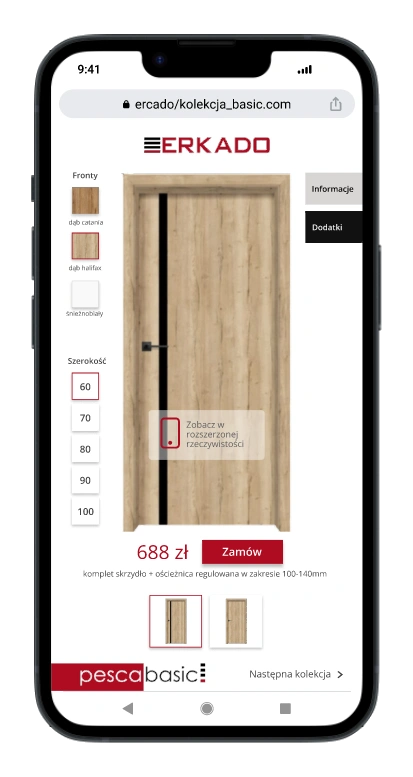Immersive VR Training

In an era where effective and engaging training is crucial to a company's success, many are turning to modern technology for solutions. One such technology that is gaining popularity in the corporate world is Virtual Reality (VR). According to a PwC report, people trained using VR complete training up to four times faster than their counterparts in traditional classroom training and 1.5 times faster than in e-learning modules.
What makes VR training stand out?
The key is the incredible flexibility and customisability. With VR, any training scenario, regardless of the specific industry or type of skills to be taught, can be faithfully recreated in a virtual space. This adaptability is potentially the reason why 70% of employers, according to the Capgemini Research Institute, consider VR and AR (augmented reality) to be key to their organisation's competitiveness.
Benefits of VR Training for Employees and Companies: A Data Perspective
VR training has huge benefits for both employees and organisations. Studies have shown that training in a VR environment significantlyincreases employee motivation and engagement. Specifically, a study conducted by the University of Maryland found that people remember information better when it is presented to them in a virtual environment, resulting in a 40% improvement in overall recall compared to a desktop environment.
The immersive nature of VR makes it possible to create realistic training scenarios that effectively translate theory into practice. As a result, VR allows for the personalisation of the learning experience. As confirmed by a survey conducted by Dell Technologies, 77% of employees agree that VR could increase their productivity and job satisfaction.
One of the most important advantages of VR training is the potential for significant savings. Hosting VR sessions eliminates the need for travel, training room rentals or complex logistics. A Goldman Sachs report predicts that the VR market in education, including corporate training, could reach $700 million by 2025, demonstrating the potential economic benefits of this type of training.
Also read: the differences between AR and VR.
Summary
In summary, VR training offers faster learning, better recall and more effective results. Backed by convincing statistical data, it is clear that VR is a modern and effective training solution. Integrating VR into your training strategy can revolutionise your company's educational process and bring tangible benefits to both your employees and your bottom line.
Finally, I encourage you to visit seemymodel.com, which features an innovative 3D configurator to create a customised product in the virtual space. Test it out today and see for yourself how 3D visualisation of products makes life easier, as well as helping to increase interest in the products on offer and, therefore, company profits.
Do you like the post? Share to others!

Krzysztof Basista
COO
For years, he has been involved in AR / VR projects ranging from entertainment to heavy industry. Always looking for problem solving through technology.
Contact us
Related posts

It is a powerful tool for presenting complex 3D models in a friendly and intuitive way. With the right techniques, you can easily visualise...

It is said that everything is worth what someone is willing to pay for it. However, as is sometimes the case with innovation, the cost of creating it...

Marketing activities on the Internet - it's a book-size topic. For a long time now, just having an online presence means literally nothing.

Objects represented in 3D product visualisations have depth in addition to length and width. This makes it possible to achieve an effect...

Augmented reality is a technology that allows the real world to be combined with computer-generated content.

As augmented reality developers say, „people are divided into those who use augmented reality and those who will use it...






